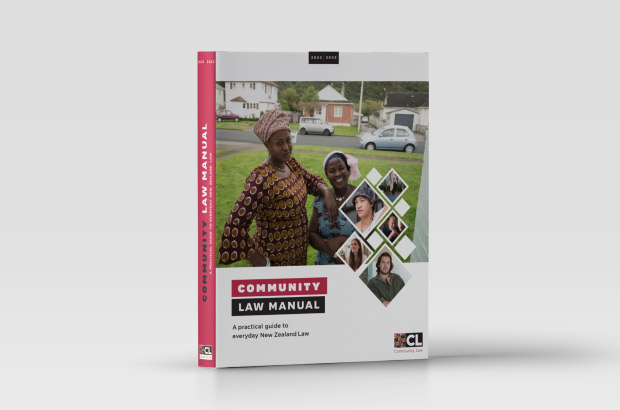Parental leave and parental leave payments
Taking parental leave: what you’re entitled to
Who can take parental leave?
Parental Leave and Employment Protection Act 1987, s 2BA
You may be entitled to take parental leave from your job if you or your partner are having a baby, or if you’re adopting or otherwise permanently taking over the care of a child under six years old.
There are two main tests which your employer uses to figure out how much leave you’re entitled to:
- Six-month employment test: any employee meets this test if they have been employed by the same employer for six months before the child is born or before they become responsible for the care of that child. You need to have worked for at least 10 hours per week, on average.
- 12-month employment criteria: any employee meets this criteria if they have been employed by the same employer for 12 months before the child is born or before they become responsible for the care of that child . You need to have worked for at least 10 hours per week, on average.
Note: Most parental leave is unpaid. You will only qualify for parental leave payments if you are the primary carer and meet the parental leave payment criteria (see: “Can I get parental leave payments?”).
How do I request parental leave?
Parental Leave and Employment Protection Act 1987, ss 31, 36
If you plan to go on parental leave, you should request this in writing, stating when you intend to go on parental leave and how long you’ll be on leave for.
If you or your partner are giving birth (as opposed to adopting or otherwise taking over the primary care role for a child), you have to give the written notice at least three months before the expected due date. You’ll need to include a certificate from a doctor or midwife confirming the pregnancy and the expected due date.
Your employer must respond to the notice in writing within 21 days, stating whether you’re entitled to take parental leave and if not, giving reasons for this. Their response must also tell you whether your job can be kept open while you’re on leave.
If you’re adopting a child or taking over primary care for a child, you must give your employer written notice at least 14 days before your requested leave period begins.
If you become the primary carer of a child before their first birthday (if the birth parent has died or for any other reason), you must give your employer notice as soon as you reasonably can after you become the primary carer.
Primary carer’s leave
Parental Leave and Employment Protection Act 1987, ss 7–14
You can get up to 26 weeks of leave from work if you are the primary carer of a child under six as long as you meet the six-month employment test (see: “Who is a primary carer?”).
If you are taking primary carer’s leave, you will be able to get parental leave payments (see: “Getting parental leave payments: what you’re entitled to”).
How long can I take leave for?
You can take up to 26 weeks of parental leave if you meet the six-month employment test. If you meet the 12-month employment test, you can also take “extended leave” on top of this.
Extended parental leave
You can take an additional 26 weeks of leave on top of your parental leave if you meet the 12-month employment test. This will give you one year of leave in total.
When two parents both qualify for extended leave, the extended leave can be taken by either of you, or you can share it between you:
If you both meet the 12-month employment test, you can get one year of extended leave in total between you both. You can divide this leave however you want.
If you both meet only the six-month employment test, your combined entitlement is six months in total. You can divide this leave however you want.
If one of you meets the 12-month employment test and the other meets only the six-month employment test, your combined entitlement is one year in total. The partner meeting only the six-month test can’t take more than six months out of the 12-month combined entitlement.
Can I transfer this leave to my partner?
You can transfer your primary carer’s leave to your partner if they are going to permanently take on the primary caregiver role for the child for the leave period. Your partner will need to meet the same employment test to be eligible for primary carer’s leave. Your leave entitlements will end when you transfer them to your partner.
When can I take this primary carer’s leave?
You can take up to six of the 26 weeks’ parental leave before your baby’s expected due date or the date when you’ll begin caring for the child. You can begin the leave even earlier than that if your employer agrees.
Your midwife or doctor can also give you a certificate so that you can begin your leave early.
Partner’s leave
Parental Leave and Employment Protection Act 1987, ss 17–22
You can take unpaid partner’s leave if you are the partner of a person having a child or the partner of a person becoming the primary carer of a child. You just need to meet the six-month or 12-month employment test to be eligible (see: “Who can take parental leave?”).
How long can I take partner’s leave for?
You can take up to one week of partner’s leave if you meet the six-month employment test.
You can take up to 2 weeks of partner’s leave if you meet the 12-month employment test. You can also take “extended leave” on top of this (see below).
Extended partner’s leave
You can extend your partner’s leave for up to one year if you meet the 12-month employment test. This includes your two weeks of partner’s leave, so this will give you one year of leave in total.
You can extend your partner’s leave for up to 26 weeks if you only meet the six-month employment test. This includes your one week of partner’s leave, so this will give you six months of leave in total.
When two parents both qualify for extended leave, the extended leave can be taken by either of you, or you can share it between you. You can take it at the same time or at different times:
If you both meet the 12-month employment test, your can get one year of special leave in total between you. You can divide this leave however you want.
If you both meet only the six-month employment test, your combined entitlement is six months in total. You can divide this leave however you want.
If one of you meets the 12-month employment test and the other meets only the six-month employment test, your combined entitlement is one year in total. The partner meeting only the six-month employment test can’t take more than six months out of the 12-month combined entitlement.
When can I take this partner’s leave?
You can take this leave up to 21 days before the expected arrival or adoption of the child and up to 21 days after they arrive or are adopted. If the baby has to stay in hospital for 21 days or more, you can start your partner’s leave after they are discharged.
Special leave
What is special leave and when can I take it?
You can take up to 10 days of unpaid leave if you are pregnant and need to take time off for pregnancy-related things, like antenatal classes and medical appointments. You can take this “special leave” at any time during your pregnancy. This doesn’t impact any of your parental leave entitlements.
Negotiated leave
What if I could get parental leave payments, but I don’t meet the tests for parental leave?
Parental Leave and Employment Protection Act 1987, ss 30A-30J
You can only get parental leave payments if you are taking time off work. Some people who qualify for parental leave payments may not qualify to take leave from work – for example, if you’ve recently changed jobs.
If this happens, you can ask your employer to allow you to take parental leave so you can get the payments. This is called “negotiated carer leave”.
How do I request negotiated leave?
You should make your request in writing at least three months before the child’s expected due date. If you’re taking over the care of a child under six, you should make your request at least two weeks before this happens.
Your employer has to respond within one month. They have to tell you whether they’ve approved or refused your request, and if they refuse, they have to give you reasons.
The employer can only refuse your request if:
- they can’t reorganise your work by giving it to your colleagues or recruiting extra staff, or
- your absence will reduce work quality, performance or ability to meet customer demand, or
- the employer is planning to make changes to the employee’s area, or
- there will be too many extra costs.
What if my employer denies me any negotiated leave?
You can’t challenge the employer’s decision just because they have refused your request for negotiated leave.
However, if your employer didn’t respond to you within the time limit, or they didn’t give you one of the above reasons, this will be considered an employment relationship problem (see: “Resolving employment problems”). If you pursue this through to the ERA, your employer can be found liable to pay you a penalty of up to $2,000.
Pregnancy-related bereavement leave
Miscarriages and stillbirths
You are entitled to three days of bereavement leave if you lose a child through a miscarriage or stillbirth. This includes if it was your pregnancy or your partner’s pregnancy, or if you or your partner were planning to adopt the child.


